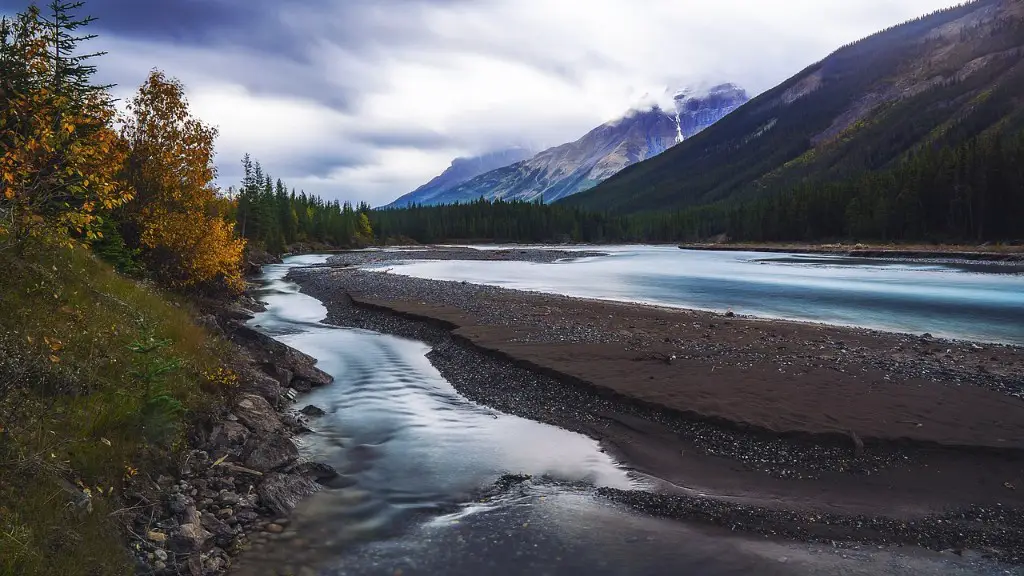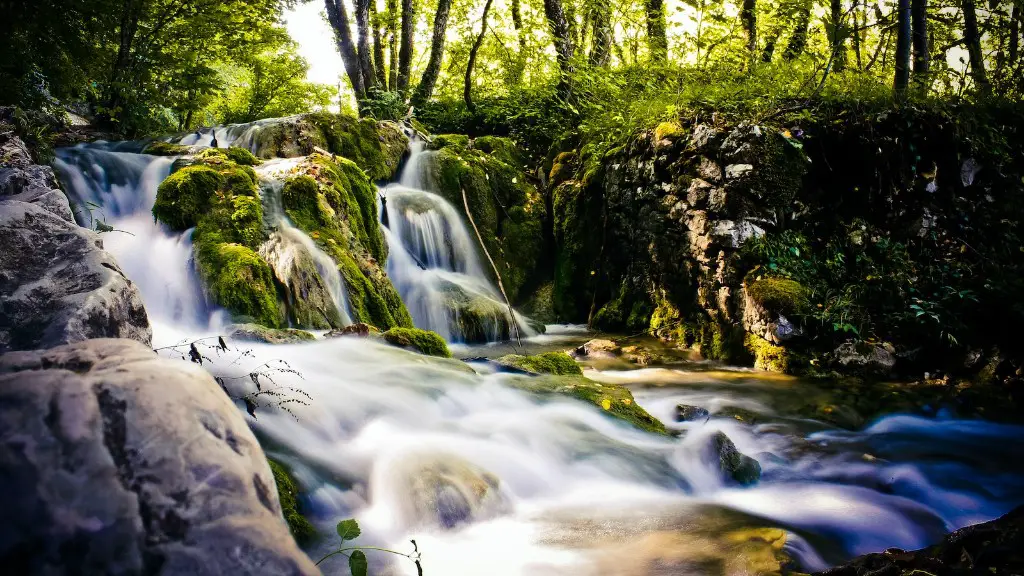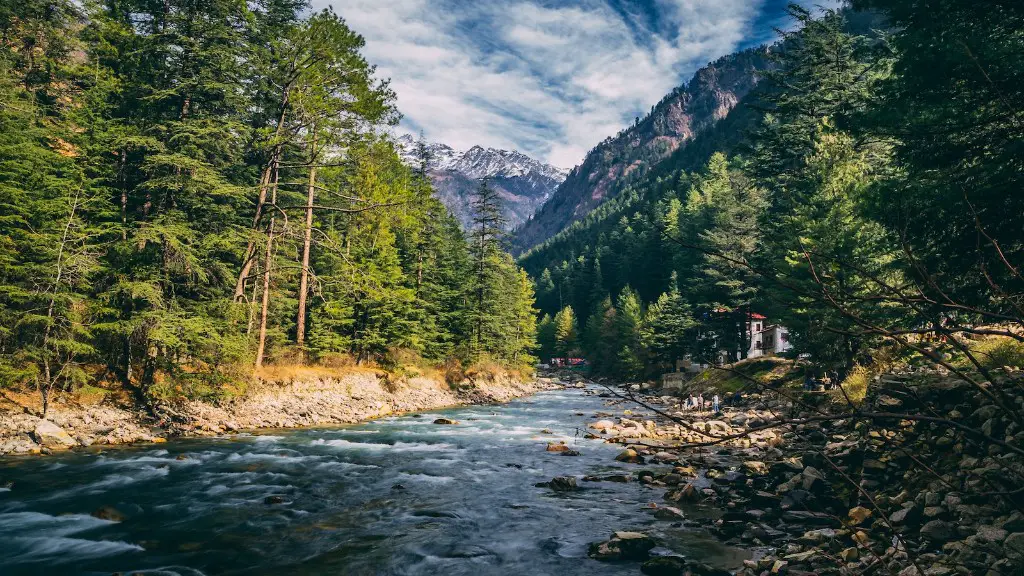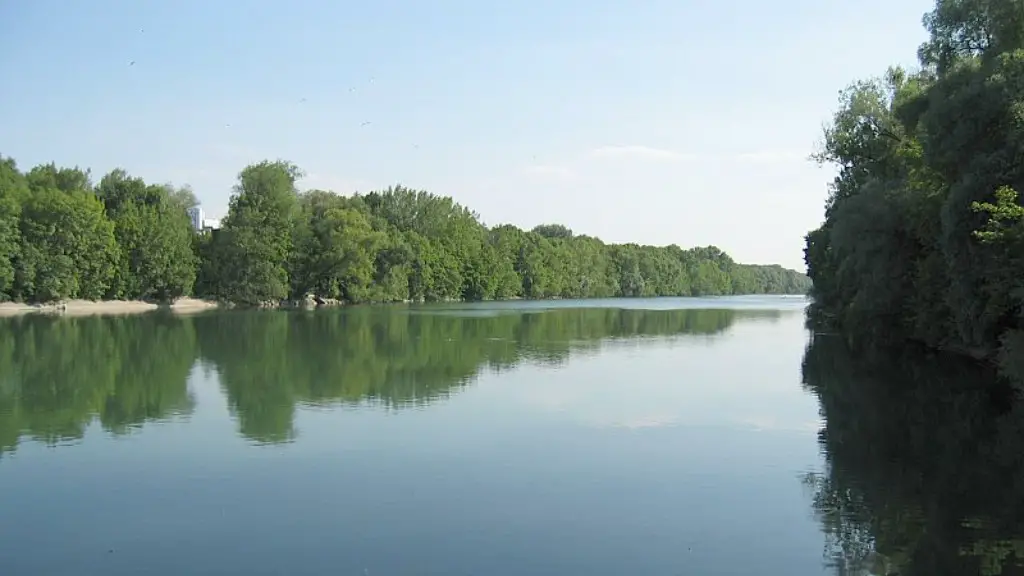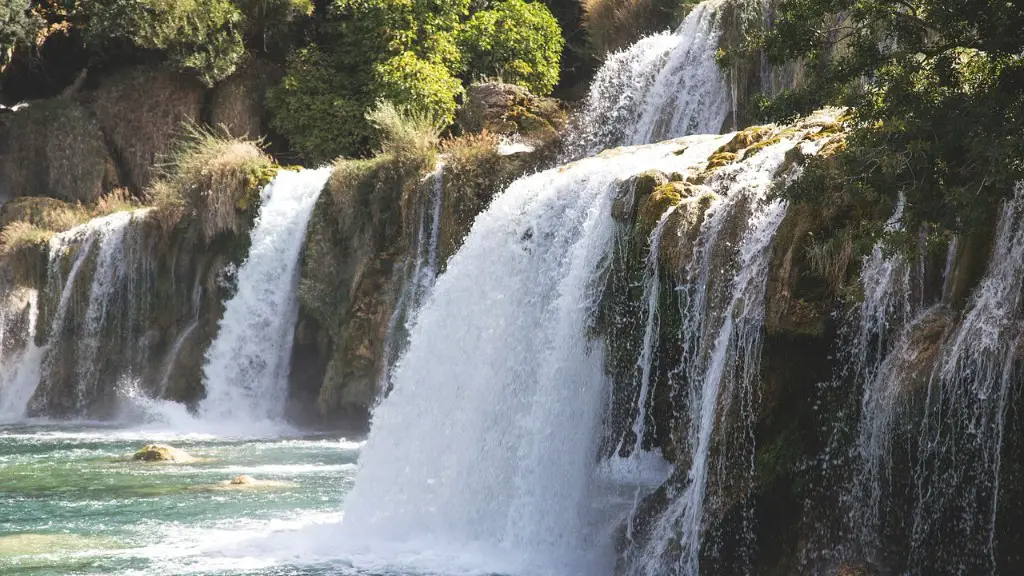The Essential Role of the Nile River
The Nile River has been an integral part of life in the Middle East and Africa for thousands of years. It is impossible to overstate the significance of this powerful river for the people and cultures that have been impacted by it. Not only does the Nile provide water for drinking and agricultural activities, but it has also been a major source of transportation, as well as a crucial part of the story in terms of its influence on the economy, culture, and day-to-day life.
The Nile River stretches more than 4,000 miles (6,400 km), meaning it has been used as a route of passage across the continent and beyond. As such, it has had a role in facilitating intercultural contacts, trade, and even conquest. This has been especially true over the past two centuries as the river has become a key part of infrastructure projects in the Middle East and Africa.
The Nile is also an important ecological asset, providing an essential home for a wide range of wildlife, including crocodiles, hippopotamuses, and various varieties of migratory birds. Such species have both a direct and indirect impact on people and their ways of life, not least providing food sources, thus helping to secure the livelihoods of many of the locals living close to its banks.
The most significant functions of the Nile River are undoubtedly economic. Agriculture and fishing have for centuries been two of the key industries in the region, and without access to water from the Nile, neither would have been as productive as they have been. In particular, the river’s yearly flooding has helped to boost productivity on the land, making it a crucial contributor to the economy in this area.
The Nile also links with the Mediterranean Sea, overall making it one of the most important waterways in the world. It functions not just as a major transport route and a provider of water and food, but also as an important trading route. This has a significant influence on the commerce and culture of this region, and its significance continues to be felt today.
In summary, the importance of the Nile River for both locals and distant visitors can hardly be understated. From providing transportation and sustenance to fostering commerce, trade, and culture, it is undeniable that the river forms one of the foundations of life in the Middle-East and Africa.
The Effects of the Nile on Local Cultures
The Nile River has been a key part of local cultures since before the time of the ancient Egyptians and has featured prominently in various aspects of life, from ceremonies and rituals to mythology. The river is thought of as a source of life, abundance, and fertility, and its water has been a highly sought-after commodity.
The Nile River has historically had a role in providing and celebrating key moments in life, such as weddings and funerals. This includes the construction of unique boats as part of the ceremonies, elaborately decorated and either sailed or paraded along the riverbanks, such as the funerary boats of ancient Egypt.
Religion has also been strongly linked to the Nile River. Ancient Egyptian deities were closely associated with it, such as Hapi, who was depicted as a god of fertility, whereas more modern religions such as Christianity and Islam have seen various sects come to the banks of the river to mark holy days.
In more modern times, the Nile River continues to be a source of myths and legends for the locals. Stories have been passed through generations, such as tales of crocodiles, ghosts, and djinns; all providing influence in the region and highlighting the importance of the river to the local populace.
In all, it is clear that the Nile has been essential to the development and ongoing practice of local cultures in the Middle East and Africa. It remains a source of life and celebration and continues to be revered and celebrated by the local people in various ways.
Why Is the Nile So Important Today?
The Nile River is important for a variety of reasons in the present day. Not only does it remain a crucial source of sustenance for the local population and facilitate travel and trade, but it is also an important economic asset.
The river is home to some of the world’s major hydroelectric power plants, seven of which are located either on the Blue Nile or the White Nile. This makes it one of the top providers of clean renewable energy in the whole of Africa, helping to reduce both air pollution and the emission of greenhouse gases.
Tourism is also an important factor when looking at the present-day importance of the Nile. The river and its surrounding landscape are home to some of the most majestic monuments and breathtaking natural beauty on the continent, making it a key tourist destination.
Notably, during the Covid pandemic, the Nile River has become even more integral to local lives. Many people are relying on the food sources it provides, such as fish, to supplement their diets and provide sustenance in these unprecedented times.
Indeed, the importance of the Nile River today should not be underestimated. It is a cornerstone of life in the region and provides sustenance, energy, and a link to the past that locals are proud to call their own.
The Role of the Nile in Ancient Times
The importance of the Nile has its roots in antiquity. It was seen as a giver of life in the time of the ancient Egyptians, with its annual flooding being used to fertilize the land and give rise to an abundance of agricultural produce.
Egyptian society was built on the principles of the Nile and its inundation; the myth of Isis, Osiris, and Horus are a testament to this. The river was also key in the rise of ancient Egypt as a superpower, allowing them to build a mighty civilization along its banks.
The greatness of ancient Egypt and its influence were heavily tied to the Nile. Without it, they would not have been able to build their impressive monuments, navigate their way across the continent, and foster trade and culture as they had done. It is easy to see, then, why it was such an important part of this ancient empire.
Environmental Issues Affecting the Nile Today
Although the Nile is an essential part of the world today, it is not without its problems. The river has been facing a variety of environmental issues for many years now, from drought to pollution, which have all had an impact on its quality and local wildlife.
Perhaps the biggest threat to the Nile is the construction of dams. The Grand Ethiopian Renaissance Dam, in particular, has been the source of a great deal of tension between Ethiopia, Egypt, and Sudan. This has led to a range of issues that are yet to be resolved.
Pollution is another major concern for the environment in and around the river. This includes sewage runoff and industrial pollutants, both of which can have severe impacts on the wildlife living along its banks and the people utilizing the river’s waters.
Overfishing is an issue too, with stocks of fish on the Nile being depleted due to unsustainable practices. This is a major problem for local industies and people’s livelihoods, as well as the overall environment.
In conclusion, the Nile is under threat from a range of environmental issues that are yet to be addressed. These are all serious concerns that must be dealt with in order to ensure its long-term sustainability.
Climate Change and the Nile River
The effects of climate change on the Nile River have been one of the most debated topics in recent years. It has been estimated that annual temperatures in the region have risen by 1.4C since 1901, with scientists warning that this could have a significant impact on the river in the future.
The primary fear is that the river’s flow has become unpredictable in recent years, leaving it vulnerable to droughts and floods. This has not only had a dramatic effect on local weather conditions but also on people’s livelihoods, making the future of the Nile River a source of concern for many.
It has been suggested that the unpredictability of the river’s flow could be a result of climate change, as melting glaciers in the mountain regions of Ethiopia could be causing large fluctuations in water levels. In addition, low rainfall and high evaporation rates caused by hot temperatures should also be considered.
Overall, the effects of climate change on the Nile remain uncertain and complex. What is certain, however, is that the phenomenon is a major cause for concern and its impact must be addressed in order to ensure the river’s long-term sustainability.
The Political Factors Affecting the Nile
The politics of the Nile Basin has had an impact on how the river has been used and managed in recent years. In particular, the region has seen a variety of disputes over water rights and usage, with many countries competing for access to the resource.
The construction of the Grand Ethiopian Renaissance Dam has caused a dispute between Ethiopia, Egypt, and Sudan, leading to a complex political situation in this part of the world. Ethiopia sees the dam as a source of much-needed energy, whereas Egypt and Sudan see it as a threat to their own water security.
The conflict between these three countries has been ongoing for some years now, with tensions recently rising over the dam project. This has only added to the complexity of the politics of the Nile, making it a topic of great importance that must be addressed in order to secure the river’s future.
The politics of the Nile also impacts governance on a more local level. Many towns and villages rely heavily on the river for sustenance and transportation, and as such it is important that the right solutions are sought in order to ensure the river remains a viable resource in this area.
In conclusion, the politics of the Nile River is a complex yet highly significant topic. It is a source of tension between multiple countries, but also a source of vital sustenance for local communities. It is clear, then, that solutions must be sought which benefit not only the major powers involved in the conflict, but also the local population who rely on its waters.
